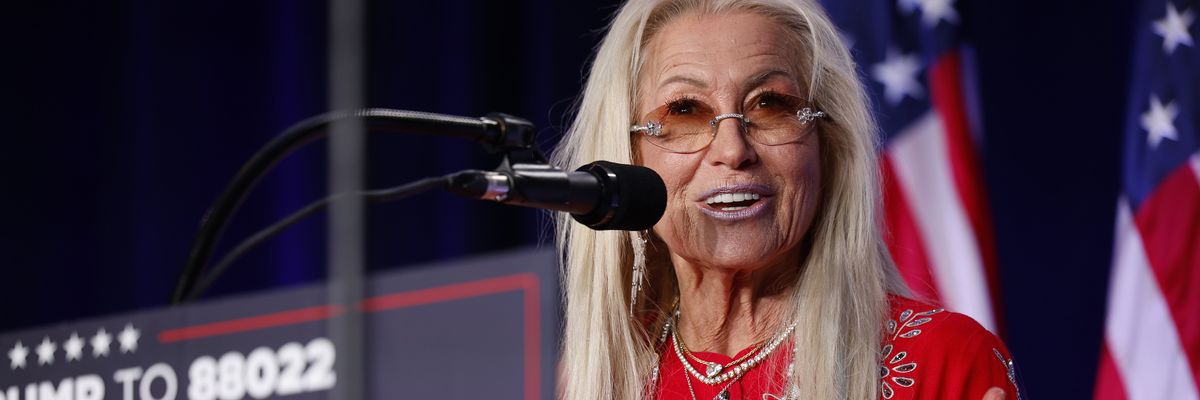A new analysis out Tuesday shows that 150 of the nation's wealthiest families have poured nearly $2 billion into this year's U.S. election—the latest evidence bolstering calls for new taxes on the super rich and an end to unlimited campaign spending.
The new report from Americans for Tax Fairness, published Tuesday, shows how spending by 150 of the richest families in the U.S. has smashed campaign spending records, with $700 million more spent than the $1.2 billion that wealthy donors poured into the 2020 campaign.
Republicans, including GOP presidential nominee Donald Trump, have been the biggest beneficiary of spending by these billionaire families, including those of Miriam Adelson, widow of casino magnate Sheldon Adelson; SpaceX and Tesla founder Elon Musk; and far-right activists Richard and Elizabeth Uihlein.
Trump "benefited from over $450 million of billionaire donations—more than three times as much as Vice President Kamala Harris, the Democratic nominee, who was the beneficiary of $143 million of billionaire contributions," reported ATF. "That's a 75%-25% split in Trump's favor."
Of the $1.9 billion that was spent on all federal campaigns by the richest families in the country, 72% or $1.36 billion went to Republican candidates, and 22% or $413 million went to Democrats.
The analysis was released weeks after The Associated Press and OpenSecrets reported Trump's small-dollar donations—those smaller than $200—made up fewer than a third of his contributions this election cycle, down from nearly half of his donations in 2020.
"Billionaire campaign spending on this scale drowns out the voices and concerns of ordinary Americans. It is one of the most obvious and disturbing consequences of the growth of billionaire fortunes, as well as being a prime indicator that the system regulating campaign finance has collapsed," said David Kass, executive director of ATF. "We need to rein in the political power of billionaire families by better taxing them and by effectively limiting their campaign donations. Until we do both, we can only expect the influence of the super-rich over our politics and government to escalate."
Trump has made clear that he would push for policies that enrich corporations and the ultra-wealthy if he wins on November 5, promising to extend the tax cuts he signed into law in 2017, which disproportionately benefited the rich. An alleged quid pro quo offer from Trump to oil executives, promising deregulation and expanded drilling if they donated $1 billion to his campaign, is being investigated by the U.S. Senate.
Harris has endorsed President Joe Biden's proposal to tax unrealized stock gains for people whose net worth is at least $100 million, and has proposed a minimum income tax for billionaires and a rollback of Trump's tax cuts.
ATF pointed out that the billionaire families in the report have managed to spend billions of dollars on the election while spending just 0.07% of their wealth.
"The median American household is worth about $200,000, making an equivalent political donation for them just $140," said ATF. "This means that a handful of billionaires have the financial political influence of more than 13.5 million ordinary families."
The group emphasized that the $1.9 billion included in the analysis "is almost certainly an undercount," both because it doesn't account for "typical flurries of last-minute fundraising" and "because there are ways of financially supporting campaigns that are anonymous or at least hard to trace back to the original donor."
"These methods include donations to so-called 'dark money' groups that spend the money on outside efforts or in turn donate it to campaign committees; and contributions to super PACs that contribute to each other in long chains," said ATF.
"It's time we end Citizens United and start taxing billionaires on their enormous, untaxed wealth gains," said ATF, referring to the 2010 Supreme Court ruling that reversed decades of campaign finance restrictions and allowed unlimited spending through super PACs.
"Our democracy and the voices of working families depend on it," said the group.




